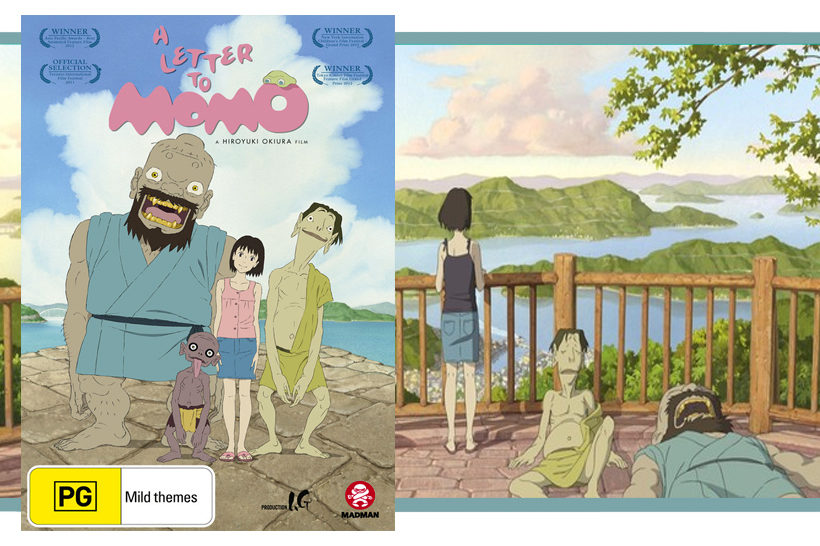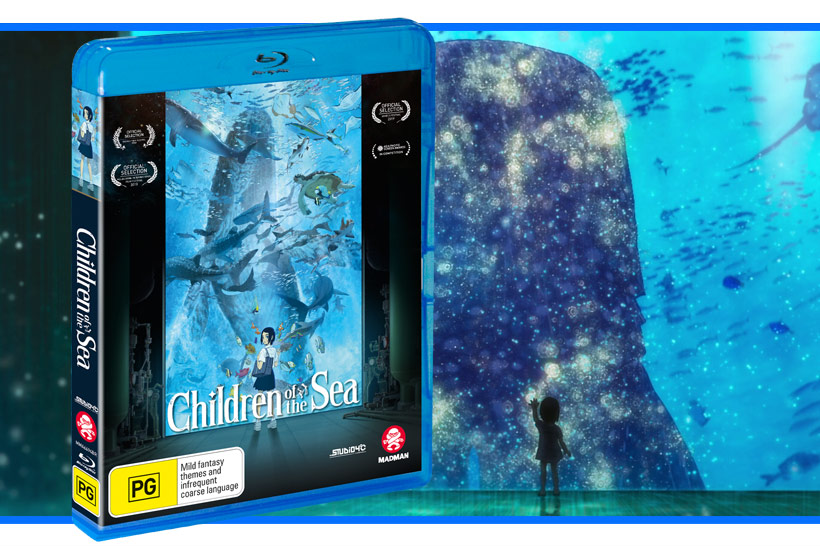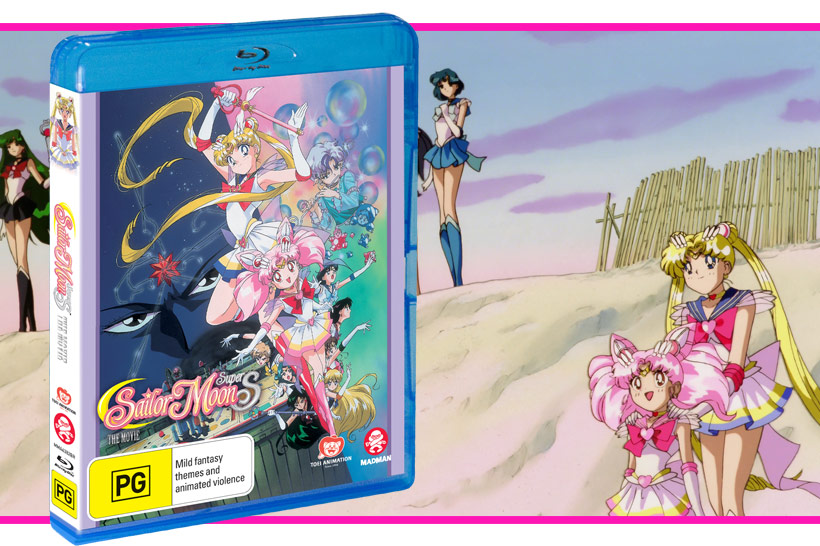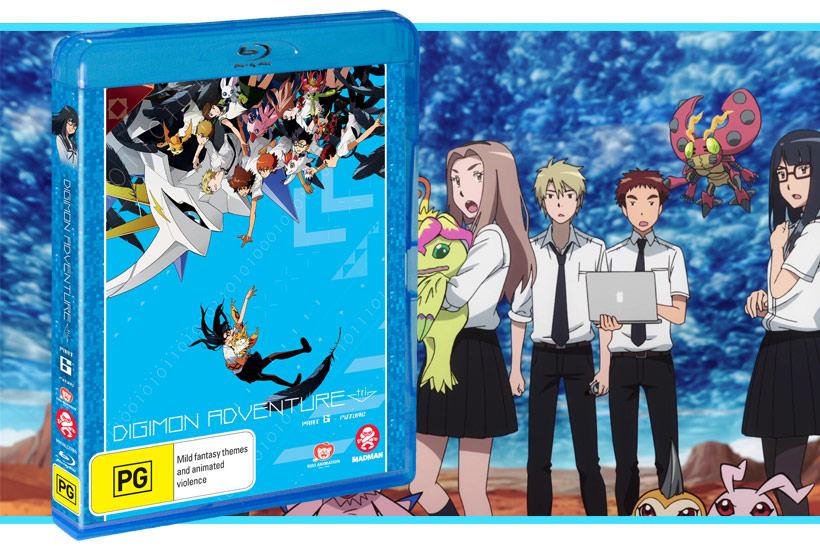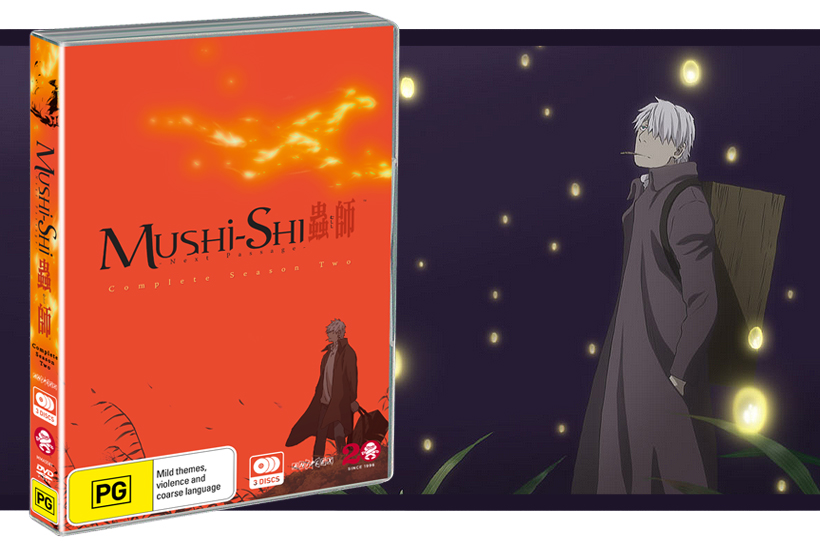An impressive aspect of Japanese storytelling and animation is that they often create a perfect marriage between our everyday reality and the fantastical. Animated gems such as Spirited Away (in fact, most of Studio Ghibli’s movie catalogue) and Wolf Children, are stories set in our world with aspects of the supernatural, a meld between mundane and magic. A Letter to Momo follows this formula, telling the story of Momo as she moves from Tokyo to Shio Island with her mother after her father’s death. The film derives its name from an unfinished letter addressed to Momo from her father, containing only the words ‘Dear Momo…’.
Moving into her new home, Momo is reserved and quiet, barely interacting with her neighbours or the other children living on the island. Momo’s life is further disrupted however when three yokai (referred to as goblins in the English version) begin to follow her after she opens an old book in the attic. Unseen by all but Momo, the three yokai; Kawa, Mame, and Iwa are constantly famished, stripping the island’s orchards and stealing from gardens to keep their hunger satiated. Although the yokai create problems for Momo, perhaps their presence can help her come out of her shell, and come to understand exactly what it was her father meant by the unfinished letter he addressed to her.
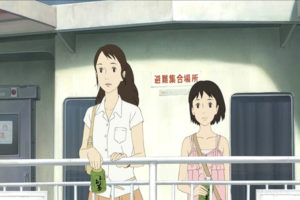
A Letter to Momo was released back in 2011 and was written and directed by Hiroyuki Okiura. The underlying conflict of the movie is interesting – what do you do if the last thing you said to a loved one was hateful, and you can never take it back? The movie juggles this question and the regret Momo experiences, alongside her discomfort and awkwardness she feels in her new home. It’s a compelling story, told at a slow pace that feels characteristic of her new environment on Shio Island. However, Momo must also share her development and valuable screen time with the mischievous and often times frustrating Kawa, Mame, and Iwa.
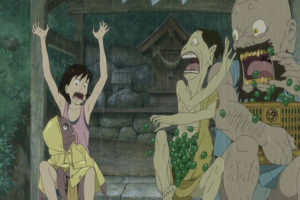
While I understand that the yokai are an integral part of Momo’s story and part of her journey to understand her father’s last words, they are the least interesting part of it. They certainly have their own story and get the plot moving, but aside from a few scenes with the quiet Mame and his endearing curiosity, they didn’t leave much of an impression on me. In contrast, the other children in the film have very little presence except for a young boy named Yota, and his little sister Umi. Their interactions with Momo and her initial shyness as she learns to be open were some of my favourite parts of the movie, and the connection between them was compelling but not dramatised. It’s a shame that Momo’s daily activities and interactions with people in her new environment were much more compelling than the vegetable thieving creatures she ends up having to look out for.
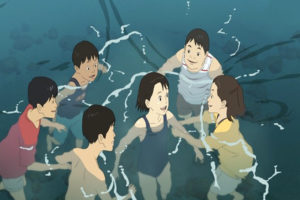
There was a particularly long sequence where Momo, Kawa and Iwa are making their way up a mountain, and in an effort to satiate their hunger the two yokai try stealing some boar piglets away from their parents. It was a long sequence and I found myself becoming increasingly distracted as it dragged on. The ending sequence felt bloated too, and a minute or two shaved off would have definitely made the final climax feel punchier rather than like it was overstaying its welcome. Maybe that sounds weird, but the moments of action were the things that I felt were slowest. But maybe it’s because they felt out of place in a story focused on Momo and her inner struggles, rather than the exterior ones.
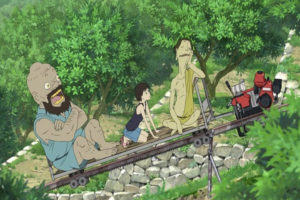
My favourite movies, animated or not, always affect me. A Letter to Momo was a good movie, but aside from one or two moments between the kids, it just didn’t leave an impact on me personally. Aside from that, A Letter to Momo has a lot of heart and a story to share, a good visual style, and only the occasional case of awkward CGI. Not all of its parts had me hooked from beginning to end, but it had a lot of warmth and energy and is worth a watch if my prior rant on yokai hasn’t deterred you.
A review copy was provided by Madman Entertainment to the author for the purpose of this review.

